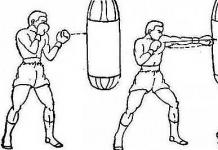Adolescence begins when the child crosses the border of ten or eleven years, and continues until the age of 15-16. During this period, the child begins to perceive the world as an adult, model the behavior of elders, and draw conclusions independently. The child develops a personal opinion and seeks his place in society. Interest in the inner world is also increasing. A teenager knows how to set goals and achieve them.
In addition to psychological changes, physiological changes occur during this period of time: secondary sexual characteristics appear, hormonal levels change, and so on.
Teenage problems
Problems arise in teenagers for various reasons. But the basis can be based on the following internal conflicts:
- The desire to become an adult, while denying the value guidelines by which adults live.
- The feeling of being at the center of the Universe and the rejection of this by others.
- Puberty and fear of the new self.
- Attraction to teenagers of the opposite sex and inability to build relationships with peers.
As a result, it is difficult for a teenager to cope with new violent emotions, and parents should always be ready to support the child in a timely manner or give advice. If in adolescence, in addition to difficulties with changing the body, he is also beset by others, for example, low parental culture, alcoholism in the family, parents being busy with their own affairs or work, then such a person may fall into the category of “difficult”. For such people there are boarding schools for difficult teenagers.

How is the educational process organized in boarding schools?
Usually, special boarding schools for troubled teenagers end up with children with serious learning problems or those who have broken the law more than once. To cope with special needs, therefore, teachers with extensive experience, defectologists and psychologists carry out their activities in these educational institutions.
Often the teaching staff also includes people with medical education. Iron discipline is the basis of education in a boarding school for difficult teenagers. The main goal is to return the child to a normal worldview and life.
First, the pupils' level of knowledge and intellectual abilities are checked. The verification takes place in the form of testing. If the results reveal a developmental delay, the boy or girl can even be taught a primary school curriculum.
The behavior of difficult teenagers is based on violations of psychological development, so students from a boarding school for difficult children constantly communicate with a psychologist. Such conversations take place individually. Based on the results, the specialist tries to find the basis - the reason for such behavior of the student.
In a boarding school for troubled teenagers, all children are constantly under the supervision of a teacher, and on Saturday and Sunday they have the right to go to their parents, although some stay on weekends.
Closed and open boarding schools
These establishments are of open and closed type. The first of them are similar to cadet corps or Suvorov schools. There is discipline and a daily routine, but children study according to the standard school curriculum (adjusted for mental abilities, of course), and can go to their parents on weekends. In closed boarding schools, everything is much more serious - there are checkpoints, marching in formation, and regular classes with a psychologist. Some pupils in such institutions do not go home on weekends, but parents can visit them on the territory of the boarding school.

Reasons to send a teenager to a boarding school for difficult children
The reasons for going to a special school are as follows:
- committing a crime if the age does not correspond to the onset of criminal liability;
- the age corresponds to criminal liability, but the child is lagging behind in mental development;
- the teenager was convicted under articles providing for a crime of average gravity, but was released from punishment under the relevant articles of the Criminal Code of the Russian Federation.
The Commission on Juvenile Affairs petitions the court to send the offender to a special boarding school for troubled teenagers. Before the case is heard in court, the minor is given a medical examination and referred to a psychiatrist. If the parents do not agree to these measures, all procedures are carried out by court decision.

Temporary detention centers
Before the court hearing, the child may be sent to a temporary detention center for up to 30 days. This happens in the following cases:
- when the life or health of a teenager must be protected;
- it is necessary to prevent repeated socially dangerous acts;
- if the child has nowhere to live;
- the offender refuses to appear in court or fails to undergo a medical examination.
Boarding schools in St. Petersburg and Moscow
The most famous boarding institution for troubled teenagers (St. Petersburg) is closed school No. 1. The establishment dates back to 1965. It is located on Akkuratova Street at number 11. This is a closed boarding school for difficult teenagers, which means that children come here by court decision. There is iron discipline, movement around the perimeter and checkpoints at the entrance.
There is a boarding school for troubled teenagers in Moscow. Institution No. 9 is located on Zhigulenkov Boris Street in building 15, building 1. Unlike the St. Petersburg boarding school, this boarding school is open-type. Children with deviant behavior can end up here by the decision of their parents or the recommendation of a special commission. The rules here are not as strict as in closed institutions.
Can troubled teenagers be re-educated?
It must be said that every difficult teenager has different problems. Sometimes it takes only one month to teach a child to be responsible for his actions, and sometimes it takes a teenager six months to adapt. Much depends on what psychological problems the boy or girl is currently experiencing.

Now teachers are arguing about whether working in boarding schools for troubled teenagers is producing results. At the moment, about seventy percent of students in such institutions significantly improve their knowledge in school subjects. In addition, pupils not only study in such institutions, but also stay the rest of the time. Thus, problem children create new ones and are more successfully socialized in society.
What should parents of difficult teenagers pay attention to?
They defend their independence. This phenomenon affects the child and he seems to behave strangely and unpredictably. Be that as it may, this condition is considered absolutely normal and characterizes adolescence.
Parents of difficult children often face other challenges. A young man or girl develops emotional and psychological problems and learning difficulties. A troubled teenager often commits illegal acts and unjustifiably risky actions. Depression and anxiety may appear.

There are signs that your child is difficult. They are listed below:
- Change in appearance. Unjustified weight gain or loss, self-harm.
- Frequent quarrels, fights, complaints.
- Poor academic performance, sleep disturbances, depression, thoughts of suicide.
- Use of drugs, alcohol.
- A sharp change in social circle, refusal to follow certain rules, lies, and so on.
The presence of problems in a teenager is the first signal that you need to establish contact with him. Your son or daughter should feel supported and understand that his parents love and accept him in any case. It is important to find common topics for conversation, encourage exercise, limit TV viewing and computer activities. Give your child advice, listen to him, do not show aggression. If you can't cope, seek help from specialists.
Deviant behavior is characterized in a very broad way - it differs from generally accepted norms. However, there are many reasons for the occurrence of such behavior, as well as, in fact, the forms of its manifestation. We must understand that it is not always the actions of a person that are strikingly different from social stereotypes that pose a threat to the individual himself and the society around him. But teenagers with deviant behavior are precisely characterized by destructiveness even towards themselves.
Deviant and mentally retarded are not the same thing
Even representatives of medicine, psychology and pedagogy interpret manifestations of deviant behavior differently, let alone people who are far from scientific terminology. Therefore, when the administration of a comprehensive school offers parents a transfer to a special school for children with deviant behavior, they often panic. Consciousness instantly draws terrible images - a colony behind barbed wire or a boarding school for children with mental disabilities. However, deviant behavior can be characteristic of even a very gifted child, who causes a lot of trouble for teachers and parents with his hyperactivity.
The older generation understands the term “difficult” teenager much more clearly, but during the reform of the education system, this concept has lost its relevance and is under an unspoken ban. Now there are children who find themselves in difficult life situations or “social risk groups.” But this did not make it any easier for teachers. In fact, transfer from a general education school to a special one is a rare case, because the number of such children increases every year. If a child from a completely prosperous family, but with a weak character, suddenly succumbs to bad influence, then parents often realize this fact and try, together with the school, to correct the situation. But what to do with families where deviant behavior is the norm for all members of the household?
How is school different for children with deviant behavior?
It must be said that there are different educational institutions for deviant children. Only teenagers who have committed a criminal offense are placed in a special closed-type institution, where conditions of temporary isolation are created under round-the-clock surveillance by security services. In most cases, children with deviant behavior are educated in open schools. But the learning conditions are strikingly different from a regular secondary school.
The first distinguishing feature is the class size (5–10 students). The second is the number of employees of the institution per student of such a school. 40-45 teachers and accompanying staff in the form of educators and psychologists direct their sensitive gaze to 70 pupils. And this is not a whim, but a real necessity. After all, children there are not punished and not only taught, but also treated. They treat not only physical wounds, but what is much more difficult – mental wounds.
Moreover, such children are taught skills that have long been obvious to children from a comprehensive school, and when taught together by “others,” this will, at best, cause ridicule. It happens that children who enter a special school have no idea even about soup and porridge and how they eat it.
What inspired the idea of connection?
Yes, the maintenance of such an institution costs considerable financial resources and, perhaps, it is not profitable at a time of active modernization of Russian education, when funding for each school is based on the number of students. Surely it is economic considerations that have caused heated discussion of the merger of schools for children with deviant behavior with general education schools planned so far only in the capital. However, it is worth considering how such an innovation will turn out for children of difficult fates and teachers, who, if these schools are closed, will be laid off.
A special school is, first and foremost, a full-day school. But practitioners note that such children require a dimensionless day. Moreover, it has been noted that in large crowds of people, children with deviant behavior are more likely to have relapses, characterized by aggressive attacks towards others. Officials promise that the fate of each deviant child will be decided individually. Some can be placed in a regular class, others will be formed into separate classes.
However, it is always easier to destroy a system that has been created over decades than to create a new one. Moreover, there are no guarantees that it will be more perfect. The number of children in special schools has not decreased in recent years. On the contrary, in addition to the 80 students available at the beginning of the school year, on average, 20 more people usually enroll in majors during the year. Even in the difficult 90s, no one came up with such a “deviant” decision - to save on merging and consolidating schools, especially by merging with a special one.
Difficult teenagers are now talked about everywhere, and psychologists regularly sound the alarm about the psychological problems that arise in such children. How does a school for troubled teenagers function, and can a child receive a full-fledged education there?
Main features of the school for troubled teenagers
A boarding school for troubled teenagers is a special organization that accommodates children who have serious learning difficulties or have faced repeated violations of the law. Many children studying here suffer from serious psychological problems and unjustified aggression towards others.
Of course, it is not easy to teach such teenagers, since they are strongly opposed to acquiring new knowledge. That is why the school for difficult teenagers employs only experienced teachers, those who can cope with the character of their students. Such institutions are characterized by iron discipline, since it is this that helps to cultivate obedience in children. Here children are monitored not only during lessons, but also during everyday recreation. The task of teachers is to try to correct the teenager’s behavior, returning him to normal life in society.

They end up in such a specialized school, mainly by court decision due to serious misconduct by the student. That is why the local atmosphere cannot be called truly complacent. At the same time, teachers working at a school for troubled teenagers do not show aggression or engage in physical assault. Education here takes place the same as in a regular school, but under greater control and supervision of adults.
The first thing teachers do when a new student comes to them is to check the level of his knowledge and intellectual abilities. To do this, the child is given a series of tests that clearly demonstrate his student skills. Sometimes it happens that children who have had a hard time in life simply could not pay enough attention to learning. That is why the level of their intellectual skills leaves much to be desired. In special boarding schools for difficult teenagers, teachers take an individual approach to the skills and abilities of each child. That is why a teenager can be taught a junior school program if special tests show a significant lag in the level of intellectual development.
Another important aspect of studying at such a school is constant consultations with a psychologist. It has long been noted that difficult teenagers, for the most part, have very serious psychological problems that affect both their academic performance and their behavior. The task of educational institutions for difficult children is precisely to correct such problems in terms of psychological development, which is why consultations with a psychologist play such an important role in normalizing the teenager’s condition. Typically, consultations with a psychologist take place individually, and at each of them the specialist tries to get to the bottom of the true source of the teenager’s problems.
Education in such schools takes place in the same subjects as in regular educational institutions. Attention is paid to standard academic subjects, as well as physical education and labor classes. Typically, education takes place in a boarding school format, that is, children remain under the supervision of teachers throughout the day, but on weekends they can go to visit their parents. Such a training system helps adults not only control children, but also become close friends with them. After a difficult period of adaptation, the teenager begins to get used to the teachers, and established friendships help the child get out of a difficult life situation.

Can a boarding school rehabilitate a troubled teenager?
It is worth noting that the level of development of problems for each difficult teenager is different. Sometimes it takes 2-3 weeks for a child to get into a groove and begin to control their actions, and sometimes they need several months just to adapt. Of course, everything here is individual and depends on the degree of development of psychological problems in the child.
Now teachers throughout Russia are actively discussing whether the work of such schools for difficult teenagers is productive, and whether they can return the child to a normal life. The statistics are relentless: more than 70% of all students in such boarding schools begin to perform better in school subjects, and their level of aggression noticeably decreases. Due to the constant monitoring of experienced teachers and individual selection of the educational system, children begin to better assimilate school material. In addition, in such institutions, children not only study, but spend almost all their free time here. Gradually, they make new friends, and communication with peers becomes a powerful incentive to change behavior patterns.
An important point in the re-education of a difficult teenager is extracurricular activities with a teacher. In such additional classes, teachers try to awaken in children the basics of moral and correct ethical behavior. Thus, in boarding schools, additional classes are often held on the topic of patriotism, respect for the outside world and for elders. The more diverse a professional’s pedagogical approaches to working on such electives are, the more successfully children will learn the social and public norms discussed in the lesson.

In the process of working with difficult teenagers, not only the activities of teachers and psychologists are important, but also the correct behavior of parents. So, for example, if adults support their child in every possible way, try to prove to him their love and the need to change their behavior, then children have much more incentive to improve their performance. Many teachers working with difficult teenagers hold special conversations with their parents, explaining how they should behave so that the child’s aggression becomes a thing of the past. As mentioned above, many schools operate as boarding schools, and children stay there throughout the week except weekends. When a schoolchild arrives home for the weekend, parents must do everything to protect the teenager from the temptations associated with his previous lifestyle.
Modern schools for troubled teenagers are popping up all over the country, but one of the best institutions of this type was founded in Moscow in 2012. In addition to modern equipment and highly qualified staff, children here have the opportunity to develop their creative abilities in every possible way. Teenagers in such a school can attend drawing classes and can actively engage in sports or dance. All this helps not only to improve the child’s behavior, but also to expand the scope of his interests. Gradually, the love of science and new hobbies will supplant the teenager’s desire to get into fights and break the law.
Such an educational institution can help not only in improving academic performance, but also in getting rid of bad habits. In schools for troubled teenagers, special attention is paid to combating nicotine and alcohol addiction. They try to wean children from smoking in every possible way, explaining the consequences of bad habits for the body. Nowadays, many children experiencing serious psychological problems associated with adolescence are trying to find a kind of outlet in bad habits, without even suspecting how much it harms their health.
You should not expect that a difficult teenager will be re-educated in 2-3 days, since this difficult process sometimes takes months, and sometimes years. Thanks to a clear daily routine and a properly designed class schedule for each teenager, the student learns to control his life.
Often the character of a difficult teenager changes so much that only a professional in special institutions can help him. Constant consultations with a psychologist and regular electives - all this helps a teenager get rid of outbursts of anger and fits of rage, returning to normal life in society and to studying in a regular school.
Special schools are not only educational institutions with in-depth study of mathematics or French. It is also essentially a prison boarding school for teenagers under 14 years of age. Although legally, of course, special schools do not belong to the penitentiary system, but to the Ministry of Education.
The fact is that, by law, teenagers under 14 years old cannot be sent to prison. Therefore, special schools are a kind of colony for children who have committed crimes.
I remember there was a rowdy boy in our 5th grade class. He robbed young children, often fought, teachers said about him: he will end up in jail. Once in a fight he knocked out another guy’s eye. After that, we all heard this harsh word - “special school”. This is where our hooligan was sent.
What is a special school? Officially, this institution is called a closed educational institution. That is, essentially, a boarding school. Teenagers aged 11-14 who have committed criminal acts end up there.
 Children under 14 years of age in Russia are not subject to criminal prosecution, although legislators have been cherishing the idea of lowering this age for many years, which, in principle, is logical. Crime is getting younger. Nowadays there are already ten-year-old murderers and twelve-year-old sexual maniacs. There are many who, after committing crimes
Children under 14 years of age in Russia are not subject to criminal prosecution, although legislators have been cherishing the idea of lowering this age for many years, which, in principle, is logical. Crime is getting younger. Nowadays there are already ten-year-old murderers and twelve-year-old sexual maniacs. There are many who, after committing crimes
do not bear any criminal liability. Childhood and teenage criminality is quite natural - there are a huge number of street children in Russia.
 There are sorely not enough special schools for all juvenile delinquents. Although it also happens that a special school is filled to half its capacity: there are too many escapes. It’s not difficult to make a “leap” from there. I spoke with a convict who was serving a sentence in a juvenile colony, and before that spent a year and a half in a special school. He said that it was easy to escape from this place and the guys fought every week.
There are sorely not enough special schools for all juvenile delinquents. Although it also happens that a special school is filled to half its capacity: there are too many escapes. It’s not difficult to make a “leap” from there. I spoke with a convict who was serving a sentence in a juvenile colony, and before that spent a year and a half in a special school. He said that it was easy to escape from this place and the guys fought every week.
As the teachers of these closed institutions say, many of their “guests” do not know how to read or write at all. Therefore, it is almost impossible to build an educational process with them. According to statistics, 88% of special school graduates subsequently end up in prison. I spoke with one of these, Anton V., when he was already in pre-trial detention. He ended up in a special school at the age of thirteen for domestic murder. Having left it, he held out for a year, and then he ended up in the “juvenile” zone for robbery. Well, now it’s completely “adult”. This is the career ladder. And it all started with a special school. These are truly teenage “universities” in front of the zone. And the orders there are appropriate.
 In principle, a special school, although it is not an institution related to the prison system, by the way, it certainly is. Already there, children receive basic knowledge behind bars: the common fund also meets there, there are their own authorities and “offended”. When something is ingrained in your head at such a tender age, it will last for the rest of your life. If everything is fine with the “concepts” in special schools, then with the security of such institutions everything is very bad. Almost only women work as teachers, and they are not particularly upset about running away - anyway, there is not enough money for all the children.
In principle, a special school, although it is not an institution related to the prison system, by the way, it certainly is. Already there, children receive basic knowledge behind bars: the common fund also meets there, there are their own authorities and “offended”. When something is ingrained in your head at such a tender age, it will last for the rest of your life. If everything is fine with the “concepts” in special schools, then with the security of such institutions everything is very bad. Almost only women work as teachers, and they are not particularly upset about running away - anyway, there is not enough money for all the children.
 The authorities' concern about the large number of juvenile criminals walking free recently resulted in the idea of increasing the number of special schools. Of course, on the one hand, this is correct. But in their current form, special schools and orphanages can even more traumatize a child’s psyche than the street with its cruel laws of survival. In addition to the fact that children from a very early age live according to the laws of the zone, their “guard” teachers sometimes commit such atrocities!
The authorities' concern about the large number of juvenile criminals walking free recently resulted in the idea of increasing the number of special schools. Of course, on the one hand, this is correct. But in their current form, special schools and orphanages can even more traumatize a child’s psyche than the street with its cruel laws of survival. In addition to the fact that children from a very early age live according to the laws of the zone, their “guard” teachers sometimes commit such atrocities!
Probably every six months, one scandal or another arises around a sadistic teacher who regularly beats, rapes, and tortures children. And in principle, teachers do not show much zeal for their work for ridiculous money. And this work is extremely difficult: difficult children are not sugar. In many correctional colonies it has now been possible to improve both living conditions and the educational process. Therefore, in the case of special schools, it is worth starting with this. And a simple increase in the number of schools will only establish conveyor belt supplies to the zones of young, but already literate in all criminal bells and whistles, criminals.

Perhaps it really is worth lowering the age of criminal responsibility for juvenile offenders. After all, a special school gives them a feeling of impunity: no matter what you do, even murder, nothing will happen to you. This feeling of permissiveness remains for the rest of your life, that’s what’s scary. In this case, it is appropriate to recall the famous case. It thundered throughout the entire Soviet Union.

The only case in history when a minor murderer was sentenced to death and executed. This teenager smoked from the age of 4, was registered in the children's room of the police from the age of 7, stole, drank. On his fifteenth birthday, Neiland brutally murdered a woman and her two-year-old son. The purpose of the murders is a raid on a wealthy apartment. I got the idea from the newspaper Izvestia, which published the adventures of the then-famous mogrusher Vladimir Ionesyan, nicknamed Mosgaz. The woman’s corpse was later found to have 17 chopped wounds, 32 bruises and 33 abrasions. When the investigator asked why Neiland also needed to kill a two-year-old boy, the killer shrugged: “When the woman screamed, the child woke up and began to cry loudly. I got angry with him and first stunned him, and then hit him on the head with an ax until he fell silent.”

























